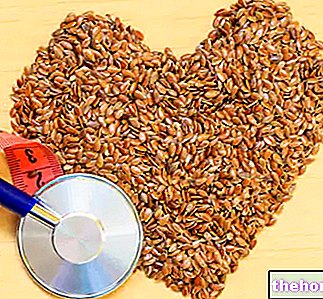The diet for Crohn's disease is NOT a cure, but a method of prevention or reduction of acute conditions.

What is Crohn's Disease?
Crohn's disease is a disorder that can affect the entire digestive tract, from the oral cavity to the anal orifice. Statistically, the tract most affected is the intestine and, to be precise, the portion of the terminal ileum (final tract of the "small intestine) and the large intestine.
Certain complications, manifested in the acute phase, can seriously compromise the metabolism and the organs surrounding the affected area (peritoneum, bladder, urethra, uterus, etc.).
NB. It is very important to underline that, in the non-acute phase, Crohn's disease does not cause major problems; only at the moment of the transition to the acute phase, the symptoms and complications that we will discuss later can occur.
Why Does It Arise?
Like ulcerative rectal colitis, Crohn's disease is a chronic and inflammatory disease of which, for the moment, both the precise etiology and the definitive cure are unknown.
The only certainties concern:
- The involvement of the immune system in the mucosa which, inappropriately activated by the presence of physiological bacterial flora, acts negatively by damaging the tissue.
- Genetic predisposition (alteration of the NOD2 gene).
- Some environmental factors including, above all, the use of non-steroidal anti-inflammatory drugs and smoking.
Symptoms and Diagnosis
For further information: Crohn's disease symptoms
Crohn's disease occurs mainly at a young age, but atypical cases of late detection cannot be excluded.
The very first symptoms are: fever, dull pain that worsens on palpation (located in the abdominal area, lower right quadrant) and diarrhea, sometimes with the presence of occult blood.
The diagnosis is not complex and concerns, first of all, the tactile perception of irregular and painful masses in the right iliac fossa. If associated with other symptoms such as: fever, diarrhea and, in some cases, early signs of malabsorption, it requires an assessment with contrast ultrasound and / or mucosal biopsy.
The diagnosis must necessarily exclude other disorders with similar or overlapping symptoms (ulcerative rectum colitis and infectious appendicitis).
Complications and Therapy
Particularly aggressive Crohn's disease, ignored or not properly treated, can lead to some serious complications.
By affecting the digestive tract, in particular the intestine, it is inevitable that Crohn's disease can have a negative impact on the nutritional status of the carrier, leading to possible deficiencies.
The picture of malabsorption induced by Crohn's disease can be:
- Generic: if the disease also involves the small intestine.
- Limited: if it affects only the terminal ileum and the large intestine.
Moreover, as anticipated in the introduction, Crohn's disease can cause anatomical alterations of the digestive tract. Among these: stenosis, fistulas, perforation and abscesses, which require a therapeutic intervention of a surgical nature.
Skin impairments such as erythema nodosum or others such as arthritis, liver lesions, decreased serum albumin and venous thrombosis are not uncommon.
Returning to nutritional complications, it is necessary to emphasize that the intestinal balance caused by the disease causes watery diarrhea and, sometimes, steatorrhea.
It is therefore deductible that the picture of malnutrition may be quite heterogeneous and lead to various problems, some of which are anything but negligible.
















.jpg)











